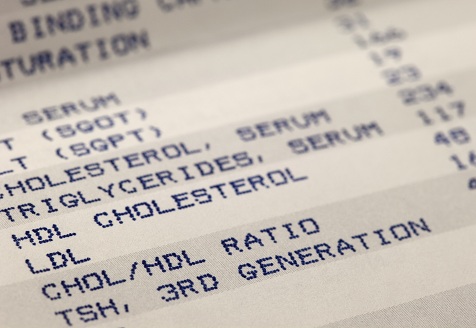 Many patients prefer to treat their high cholesterol without resorting to prescription drugs. Sometimes, by utilizing lifestyle and diet changes, we can avoid statin drugs altogether. More often, these non-prescription natural therapies can allow individuals to take lower doses of the statins and still maintain healthy cholesterol levels, which is ideal for people who are at high risk for future heart attacks and other cardiovascular problems.
Many patients prefer to treat their high cholesterol without resorting to prescription drugs. Sometimes, by utilizing lifestyle and diet changes, we can avoid statin drugs altogether. More often, these non-prescription natural therapies can allow individuals to take lower doses of the statins and still maintain healthy cholesterol levels, which is ideal for people who are at high risk for future heart attacks and other cardiovascular problems.
But let’s be clear, statins are safe and effective drugs that save millions of lives each year. In fact, most cardiologists I know, including me, are on a statin such as Crestor, Lipitor, or simvastatin. We prescribe these drugs day in, day out, so we see firsthand how safe and effective they are for keeping your blood vessels, heart, and brain healthy.
Notwithstanding, we have discovered several strategies for lowering your bad cholesterol with natural, over-the-counter, therapies. Consider using these options to help keep your cholesterol levels in the ideal ranges, and discuss them with your doctor to make sure that they are right for you.
1. Fish oil. The omega-3 fats found in fish oil help to support healthy triglyceride and HDL (good cholesterol) levels, as well as promote cardiovascular health.* To get these benefits, you will need to take a moderate to high concentration of fish oil. CardioTabs Omega-3 products are highly purified and concentrated oils that provide DHA— an essential omega-3 fatty acid. Speak with your physician to find out how whether omega-3 would a beneficial addition to your health regimen.
2. Tea supplements. Theaflavins, catechins (EGCG), and polyphenols are antioxidant compounds that occur naturally in tea and have been shown to support cholesterol health.* CardioTea, one daily, is a convenient and effective way to get the benefits of tea. Studies show that tea antioxidants like EGCG may help to support weight loss, especially when used as part of a healthy diet and exercise program. There is a minimal amount of caffeine in CardioTea, about the same as in a quarter cup of tea.
3. Plant sterols (also called phytosterols). This is a natural product that comes from plants such as nuts, beans, and vegetable oils. Plant sterols help to maintain healthy cholesterol levels by reducing the amount of cholesterol you absorb from your food. Plant sterols have been used for almost two decades now and are the most extensively tested over-the-counter therapy for lowering cholesterol. Four capsules per day of CardioSterol, either all at once or two caps twice daily provide 2 grams of phytosterol esters. "Foods containing at least 0.65 gram per vegetable oil sterol esters, eaten twice a day with meals for a daily total intake of at least 1.3 grams, as part of a diet low in saturated fat and cholesterol, may reduce the risk of heart disease." Plant sterols have virtually no side effects, and although you can get them in the form of margarine, you will have to consume about two tablespoons of the spread and a lot of calories to get the full cholesterol-lowering dose of 1.3 to 2 grams of phytosterols. That is why we recommend you get the plant sterols from a diet high in plants and CardioSterol capsules.
4. Vitamin D. This is really a hormone more than a vitamin because it is made in one organ and profoundly affects cells throughout the body. The first symptom of vitamin D deficiency is aches and pains in the muscles, joints, and bones. Decreased vitamin D levels can cause an increase in parathyroid hormone which can lead to increased inflammatory levels. Chronic inflammation can predispose diabetes, cardiovascular disease, and stroke, which is why maintaining vitamin D levels is essential.* Ask your doctor to check your vitamin D level—most Americans have abnormally low levels of this hormone that is crucially important to your long-term health and well-being.
5. Soluble fiber. This type of fiber dissolves in water into a gel that helps to prevent cholesterol absorption from the food you eat. Soluble fiber is present in many plant foods including broccoli, apples, oatmeal, carrots, plums, prunes, pears, citrus fruits (oranges, grapefruit, and lemons, etc.), beans, and nuts. Psyllium, the plant that is used in most fiber supplements including Metamucil, Fiber One, and Citrucel, contain soluble fiber which is recognized by the FDA to help lower cholesterol. Diets low in saturated fat and cholesterol that includes 7 grams of soluble fiber from sources like psyllium husk may reduce the risk of heart disease by lowering cholesterol.
6. Niacin. This is a B vitamin and was among the very first agents used for cholesterol support and is still a valuable tool today in certain individuals. This is not an easy drug to take, as it often causes flushing (temporarily making you look and feel as though you have sunburn on your face and neck). High-dose niacin can also raise sugar levels, and predispose to upset stomach; so you want to be in touch with your health care provider when taking niacin.
In Good Health,
James O'Keefe, MD




